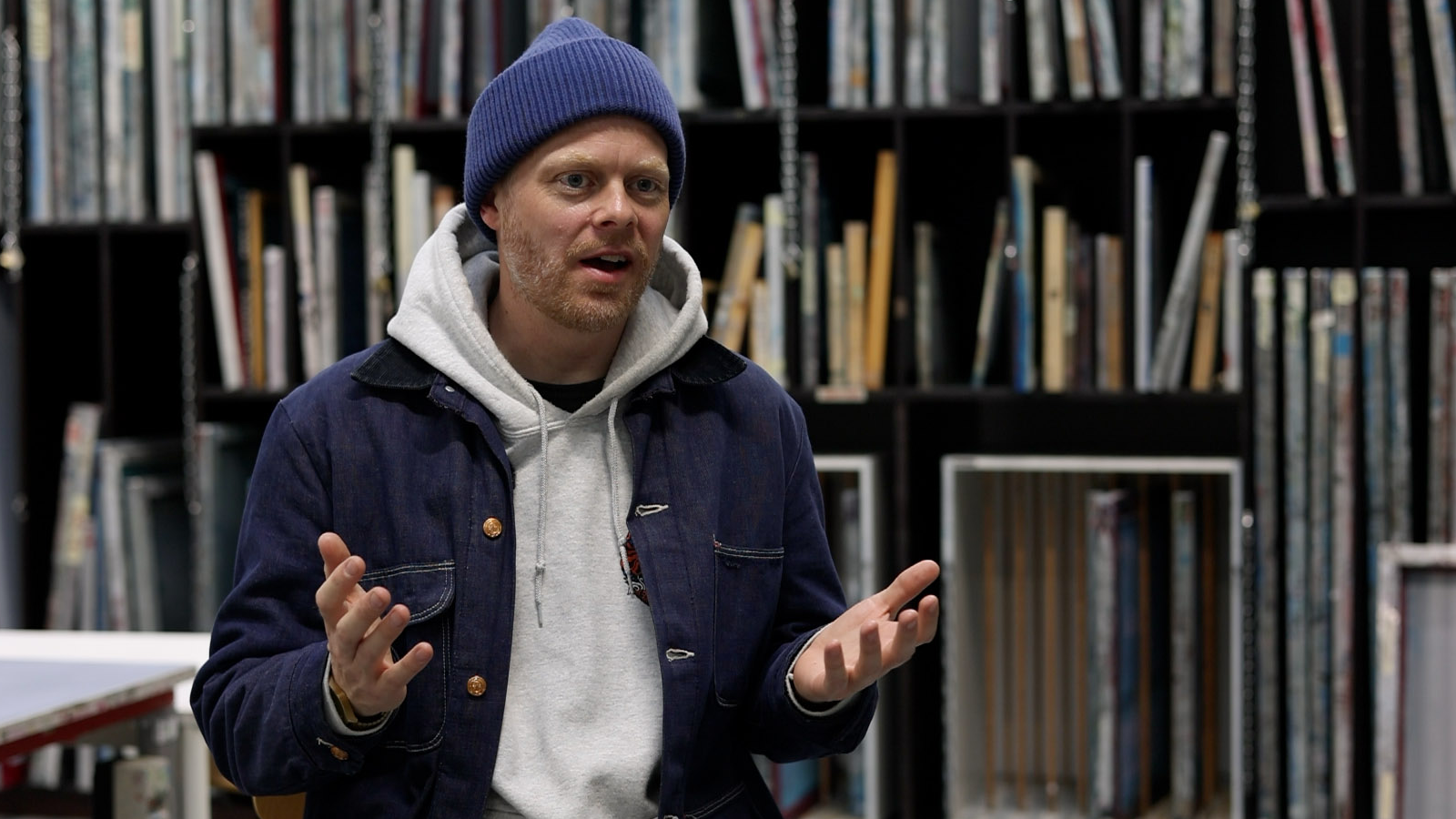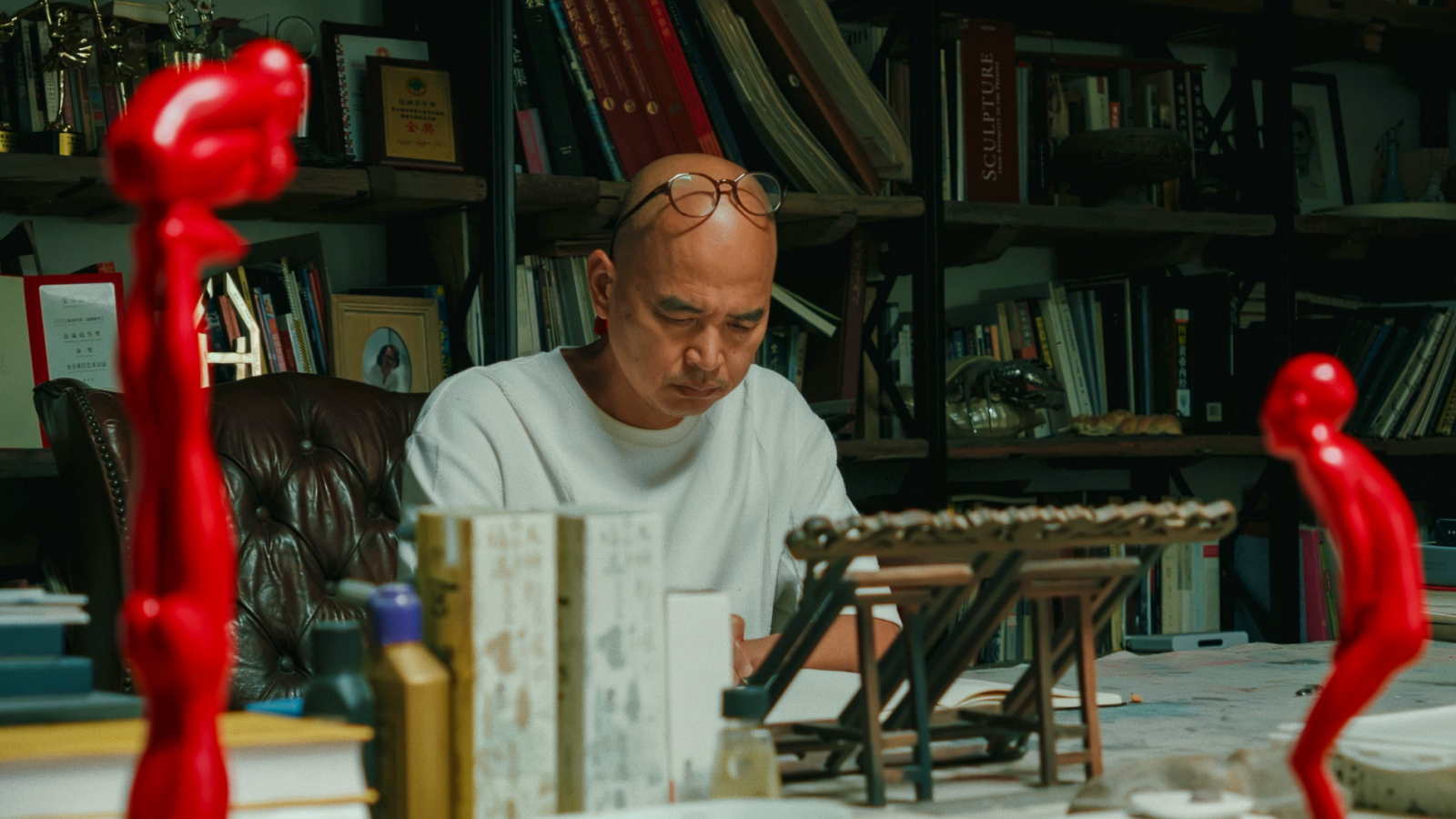Interviews
An Interview with Johnny Romeo: Art, Icons, and Subversion
August 26, 2025
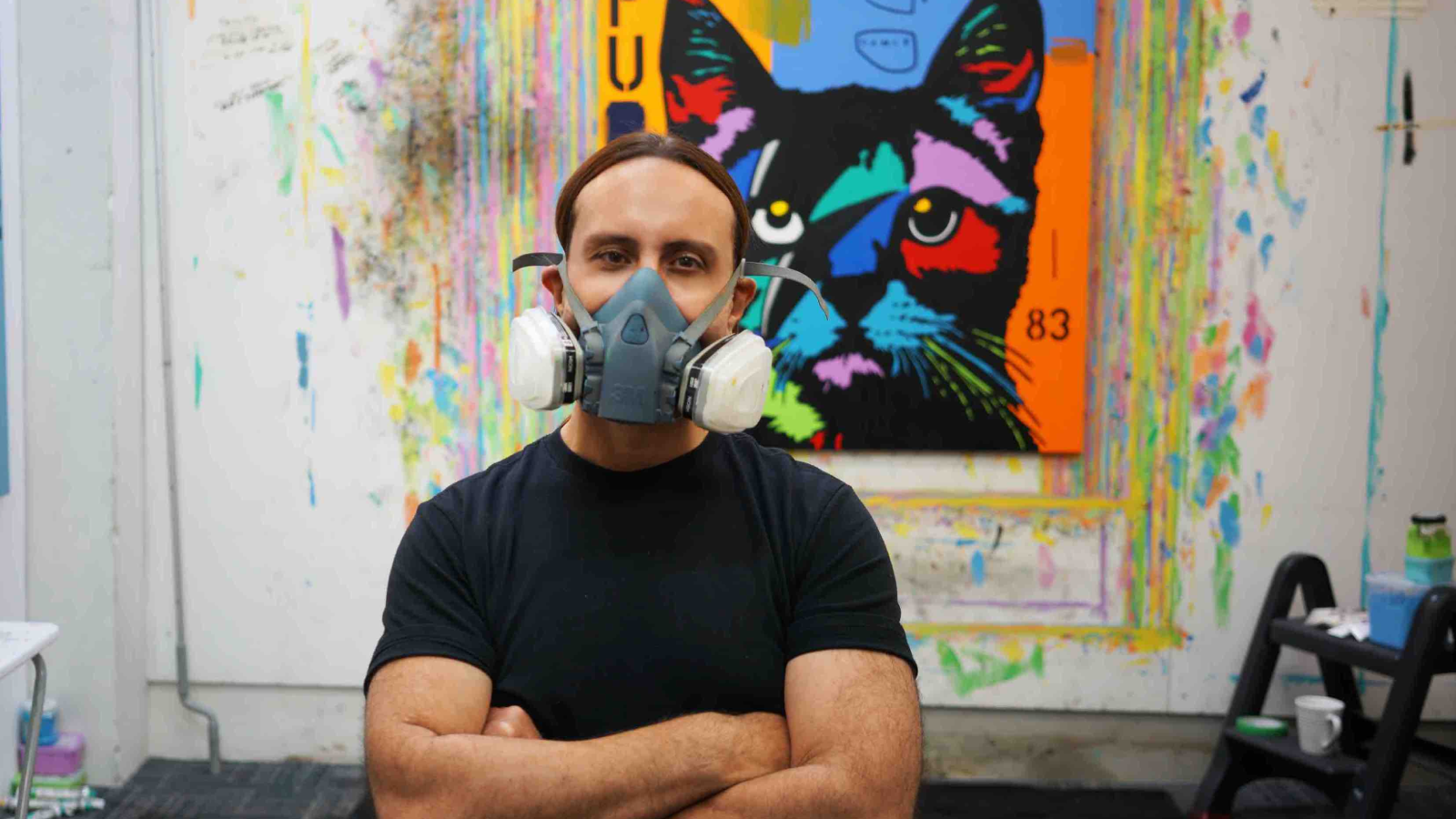
It started with a train ride.
A young boy in Sydney’s inner west, skateboarding past spray-painted walls, catching glimpses of defaced billboards from the platform, ads that had been cleverly vandalized to say something else, something subversive. He didn’t know it yet, but that visual mischief, that collision between message and mutation, would one day become the cornerstone of his artistic philosophy. “There was a group called Bugger Up,” Johnny Romeo recalls, eyes lighting up. “They would cross out words in cigarette ads and change the meaning. As a young kid… seeing the power of subversion, and how I could redirect the meaning of a word, was so powerful.”
Fast forward decades later and that same boy, now one of Australia’s leading pop artists, still chases that thrill of visual disruption.
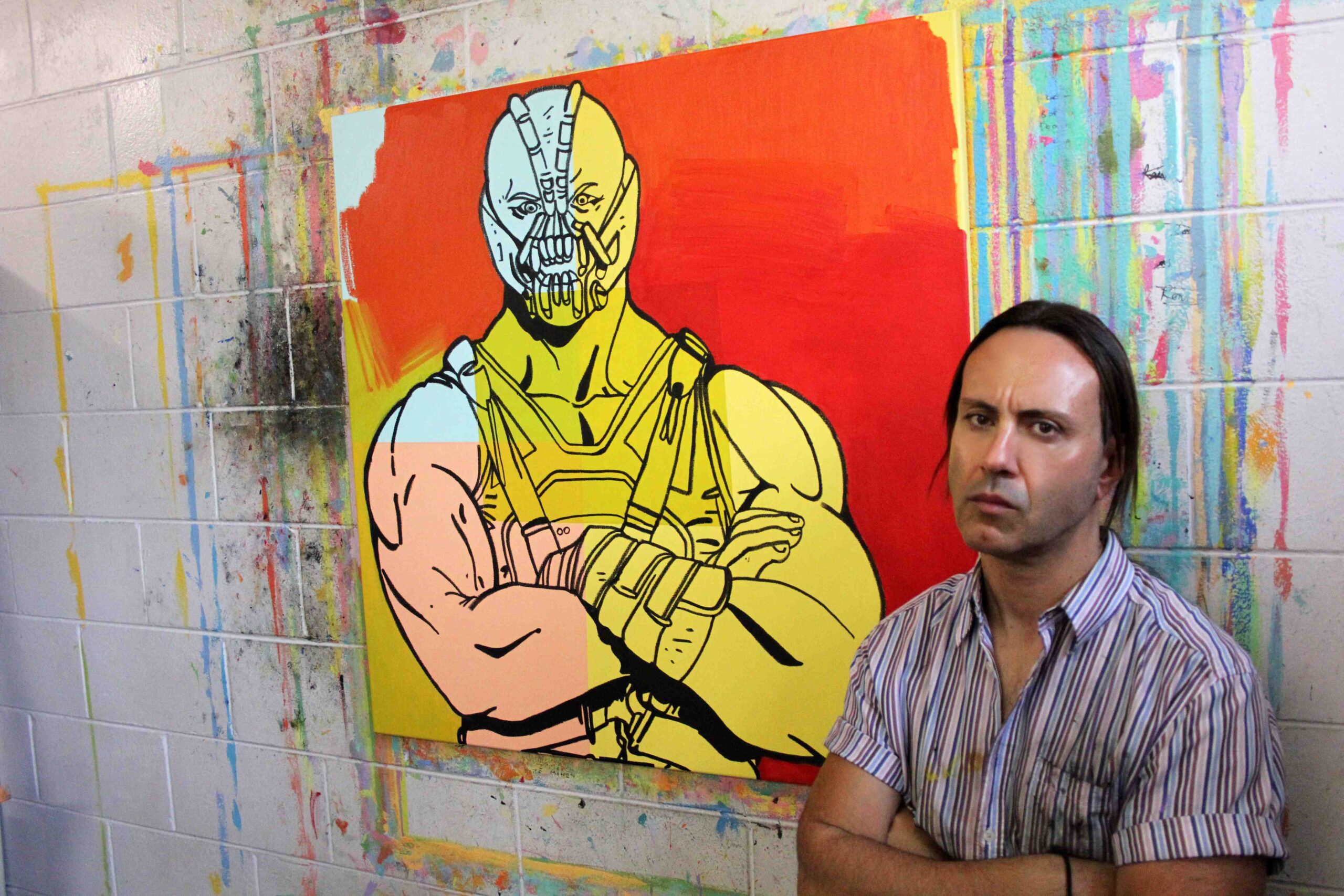
Graffiti Roots, Academic Growth
Romeo’s journey began in the schoolyards of the ’80s and ’90s, where skate culture, hip hop, and graffiti shaped his lens. “We were fearless as kids,” he says. “There was this invincibility in how we skated, played, and just did stuff. That energy transpired into my art.”
Though he began as a graffiti artist, university gave him the foundation to turn instinct into practice. “They taught you how to paint, about art history, the lineage,” Romeo reflects. “It changed the way I saw the world… but it was also a stifling place. You had to fit into a way of working. You had to think highbrow.” Still, without it, he’s certain: “My career would’ve fizzled out.”
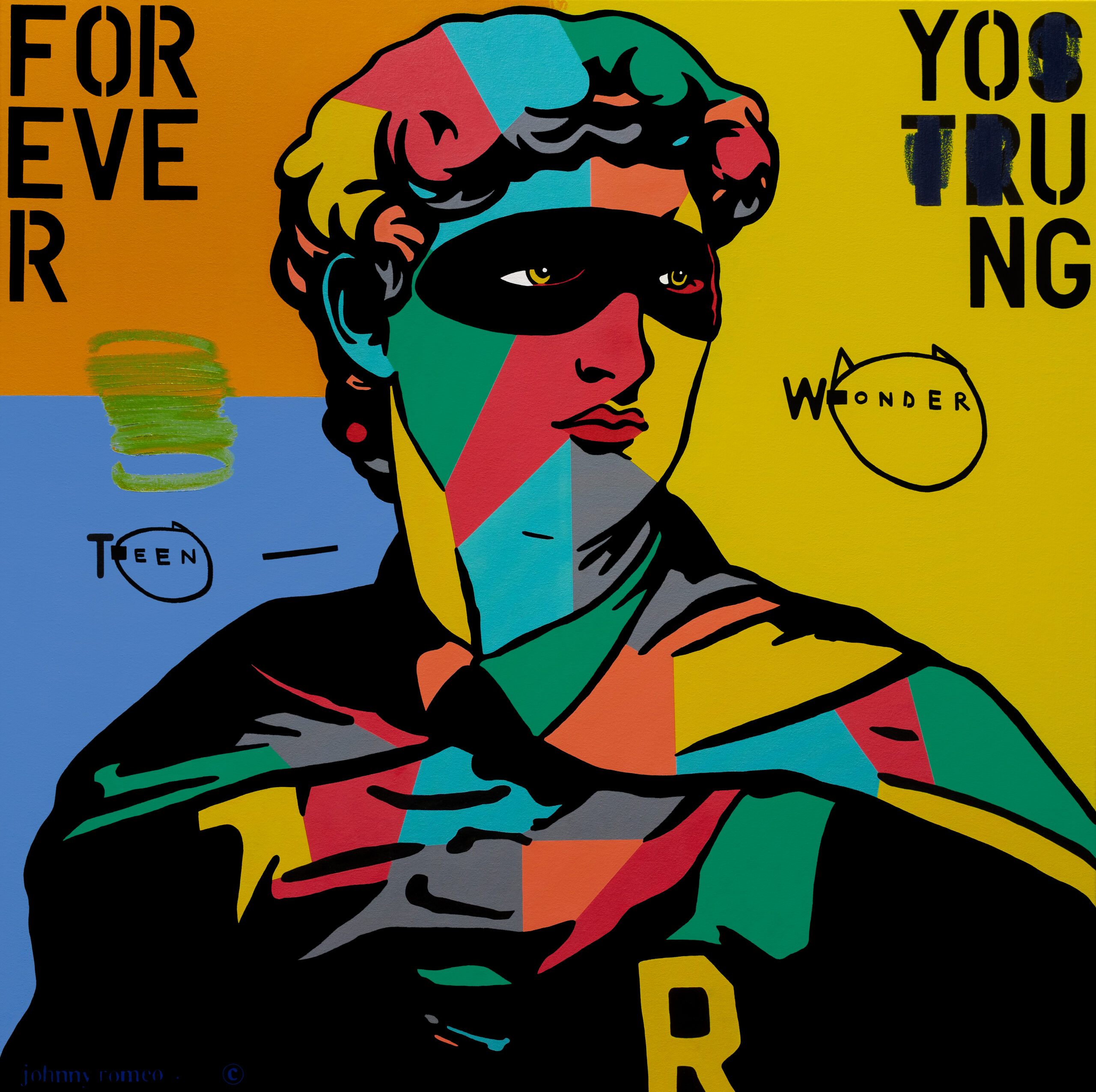
Pop Culture as Identity
Romeo’s work thrives on a collision of imagery and language, bold portraits mashed with cryptic, cheeky, or politically loaded text. “I’m fascinated by how we build our identities through brands and pop culture,” he explains. “It’s the world we live in. And I like to comment on that, on how we navigate our modern world.”
He calls it “culture-jamming.” Romeo hijacks familiar icons and phrases, then subverts them with words to twist meaning and elicit reflection. “When you start adding text to an icon… it can be very, very powerful. I like to play on people’s memories. I use what they recognize… then I take it one step further with my words.”
His paintings are not just technicolor punchlines; they’re socio-political puzzles, layered with critique and introspection. “I just don’t paint generic pretty pop pictures,” Romeo asserts. “There’s a lot of thought, a lot of layering that holds my work together.”
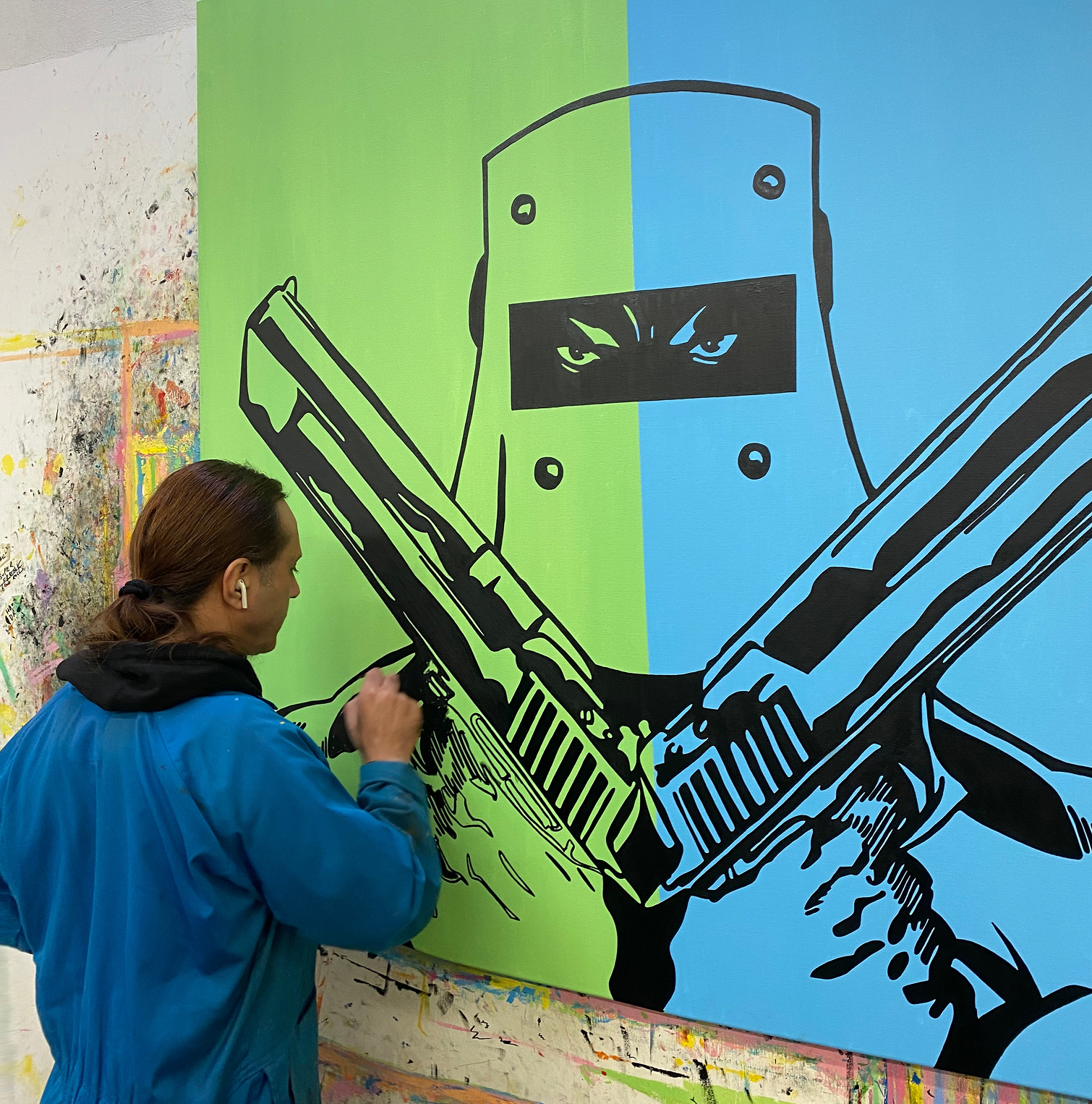
A Relentless Creative Clock
For Romeo, art isn’t a romantic waiting game, it’s labor, routine, obsession. “People ask me if I get creative blocks. I say no. I can’t afford to,” he says with a laugh. “When I was young and renting a studio, I’d sit there doing nothing and think, ‘I’m paying rent!’ So I started using a stopwatch to time myself. Seven hours a day, seven days a week. No birthdays. No Christmases.”
His discipline is rigorous, almost industrial. “We’re not just working on one piece. There’s a plan of attack every day. Color decisions, opacity, texture, it’s constant conversation.”
The Cost of Color
Behind Romeo’s confident neon palette is a pragmatic artist managing not just creativity, but a business. “This is how I make my living,” he says bluntly. “Before I even land for an international show, I could be $20,000 out of pocket. You need your shows to do well. That funds the next six months of practice.”
And yet, commercial success can be its own trap. “You become better, tighter. Then all of a sudden, you’ve got a brand,” Romeo says. “To try something new, I need to go to markets that don’t know my work. That itch to experiment, I manage it by curating international shows. That keeps me creatively alive.”
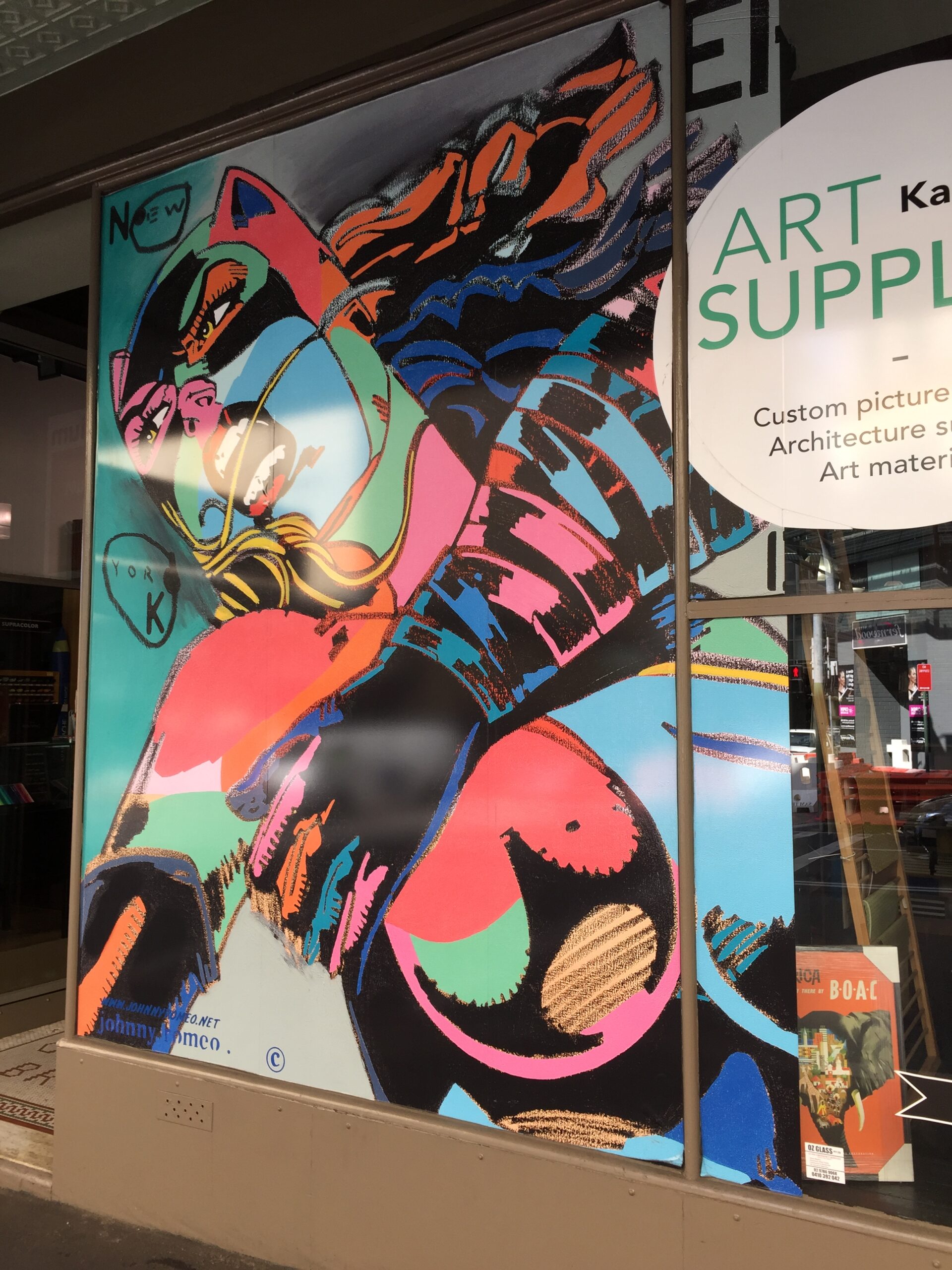
The Power of Community
Despite the demands of the art world, Romeo remains an advocate for the creative community. “It’s important to champion other artists,” he says. “What we do isn’t rocket science, but we bring color, excitement, joy. And supporting all art forms, music, poetry, acting, it’s vital to who we are.”
Seminal’s role in Romeo’s journey is a natural extension of this philosophy. “They can take what I do to the world in so many different ways,” he says. “It means people can experience my work on more levels than just the canvas.”
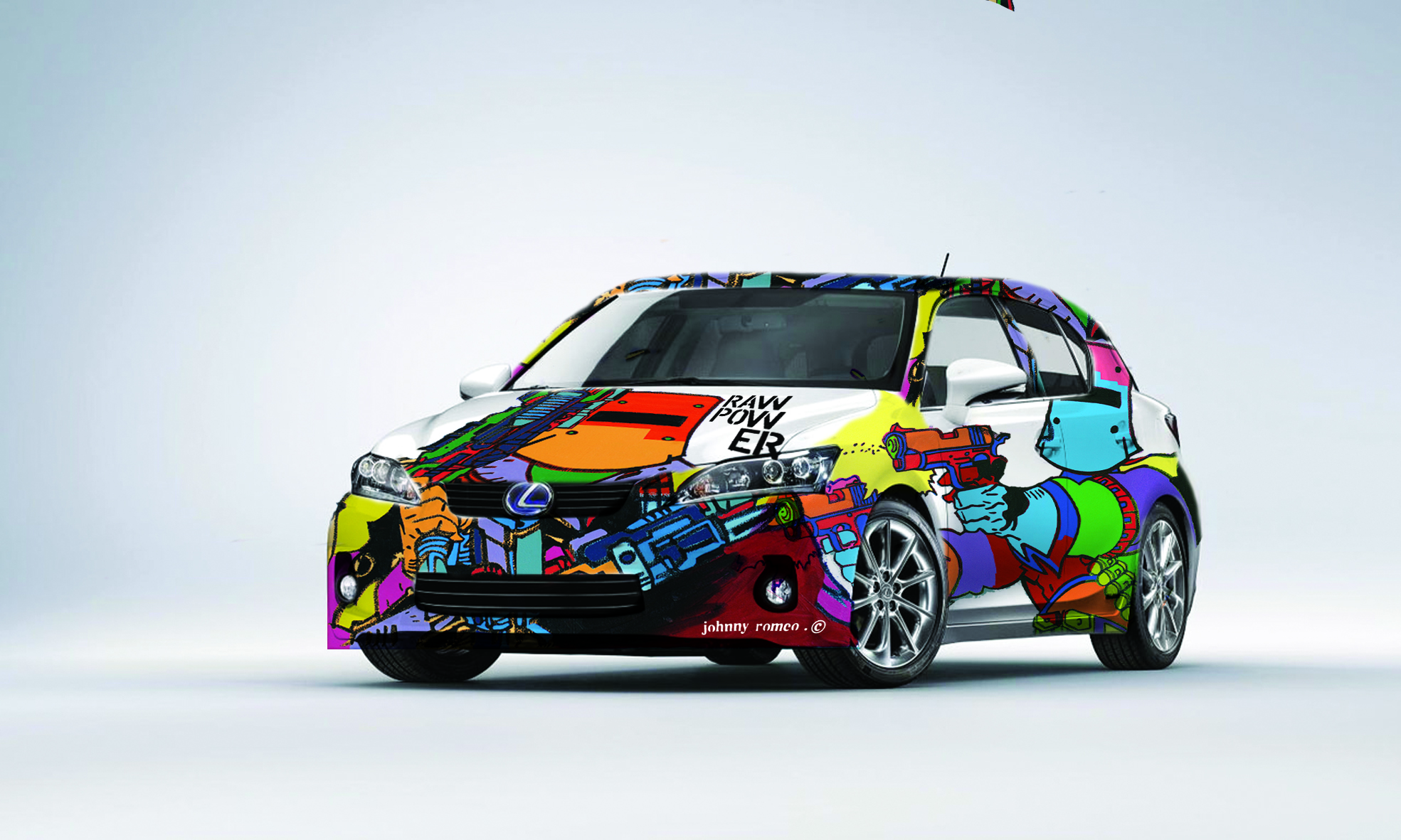
Legacy in the Layers
So what does Romeo hope for, looking ahead 50 years?
“That people see it wasn’t just generic pop,” he says. “That it had substance, relevance, layers. That I made their lives a little more informed, and a little more colorful.”
Johnny Romeo is more than a painter. He’s a cultural antenna, tuned to the frequencies of fashion, media, nostalgia, and rebellion. His work doesn’t just speak, it shouts, sings, and sometimes whispers a question into the bright static of modern life.
And perhaps the real question isn’t what Romeo’s art is about, but what does it provoke in you?
To explore more of Romeo’s art, follow him on Instagram and explore our website to apply for representation or licensing enquiries today.
Contact Seminal.
Sign up to our Newsletter.
Watch Johnny Romeo’s Artist Spotlight:
